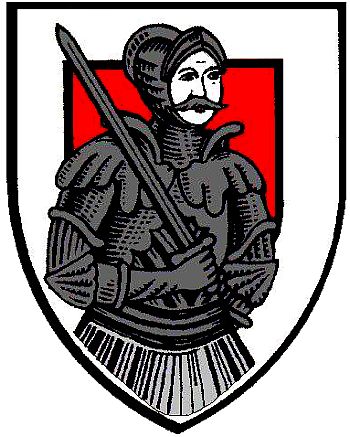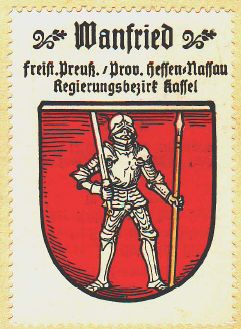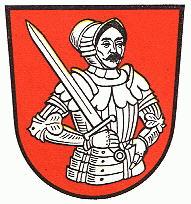Wanfried: Difference between revisions
Knorrepoes (talk | contribs) m (Text replacement - "Stadler, K. : Deutsche Wappen - Bundesrepublik Deutschland. Angelsachsen Verlag, 1964-1971, 8 volumes." to "Stadler, 1964-1971, 8 volumes.") |
Knorrepoes (talk | contribs) m (Text replacement - "Category:Hessen" to "50 pxCategory:Hessen") |
||
| Line 27: | Line 27: | ||
[[Category:German Municipalities W]] | [[Category:German Municipalities W]] | ||
[[Category:Hessen]] | [[File:Hessen.jpg|50 px]][[Category:Hessen]] | ||
[[Category:Werra-Meissner Kreis]] | [[Category:Werra-Meissner Kreis]] | ||
[[Category:Eschwege]] | [[Category:Eschwege]] | ||
Revision as of 13:03, 9 December 2017
This page is part of the German heraldry portal Deutsche Wappensammlung |
Heraldry of the World |
|
German heraldry:
|
Selected collector's items from Germany:
|
WANFRIED
State : Hessen
District (Kreis) : Werra-Meissner Kreis (until 1974 Eschwege)
Additions : 1971 Völkershausen; 1972 Altenburschla, Aue, Heldra
Official blazon
In silber ein rotes Feld im Herzbereich des Schildes. Davor die Büste eines gerüsteten Ritters.
Origin/meaning
Wanfried received city rights in 1608 by Margrave Moritz of Hessen, but the oldest seal already dates from 1578. The seal shows the knight with a sword and spear. Ever since the knight has been the arms of the city. The image itself has changed considerably, sometimes a whole knight, sometimes a torso, with or without spear etc. The present image has been in use since the end of the 19th century.
The origin of the knight is not known. It has been stated in a document from 1613 that it is St. Bonifatius, but this is not likely. It has also been explained as a canting symbol (Wahr'n Fried, or peace-keeper), but the origin remains uncertain.
| The arms by Hupp in the Kaffee Hag albums +/- 1925 |
The arms in the 1970s |
Contact and Support
Partners:
Your logo here ?
Contact us
© since 1995, Heraldry of the World, Ralf Hartemink 
Index of the site
Literature : Stadler, 1964-1971, 8 volumes.















